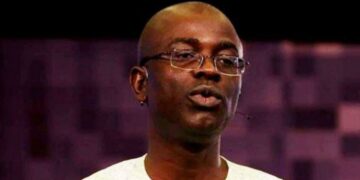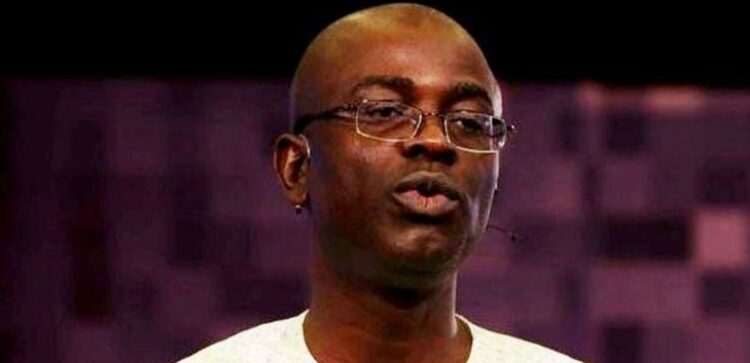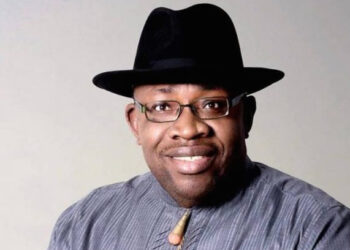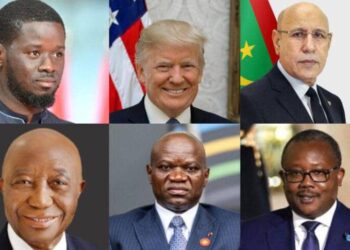By Olusegun Adeniyi
Old students’ associations can be a bridge between the past and future. In several countries, academic institutions owe their survival and development to the vibrancy of these alumni bodies. But though they engender a spirit of unity necessary to surmounting difficult challenges facing our country today, we are yet to sufficiently tap into this critical opportunity. Or at least so I thought. Until January last year when I received a call from former Nigerian Television Authority (NTA) Director General, Mr Sola Omole. He made what I considered a rather unusual request on behalf of Fiditi Grammar School Old Students Association (FIGSOSA) of which he is a member. To mark its 70th anniversary this February (then 13 months away), FIGSOSA wanted a commitment from me that I would write a column about the standards of education in Nigeria over the past 50 years.
Five months later, 22 May 2023 to be specific, I received a letter jointly signed by FIGSOSA national president, Professor Adesola Ogunniyi, chairman of the anniversary’s organising committee, Mr Oladapo Lagunju and Omole who chairs the publicity committee. After highlighting the theme for the 70th anniversary, ‘Sustainable Youth Development—Roles for Old Students Associations’, they formally made their request.
“Our desire is that using the celebration and our theme as background, you review our education standards and perhaps proffer ways of improvement,” their letter stated. “We want this to be our contribution to the all-important debate about the place of education in Nigeria. We request that this suggested piece appear in your backpage VERDICT column on any day between the 12th and 16th of February 2024.”
READ ALSO: Reopening Of Niger’s Border With Nigeria: X-raying The Economic Implications
I thank the leadership of FIGSOSA for their concern about education in Nigeria. I feel very humbled that they consider my intervention on the issue of any consequence. Honestly, I have found it difficult to process the amusing request. Whoever came up with the idea obviously has more faith in this column than I do. But for whatever it is worth, considering the reminder I got last week, I intend to keep my promise. First, let me say a few words about Fiditi Grammar School in Oyo State.
Founded in 1954, the late Mr Christopher Okigbo (who would become a globally renowned poet) was a teacher and later vice principal and sports master at the school. The duo of Okigbo and then principal, Chief Alex Ajayi, according to Omole, recruited Teslim ‘Thunder’ Balogun as coach for the football team that won many laurels. Other prominent products of Fiditi Grammar School include Dr. Bode Olajumoke, a prominent lawyer, businessman and former Senator who was for 20 years FIGSOSA National President, Professor Adejare Agboola of Applied Botany Department at the University of Agriculture, Abeokuta, Professor Olufemi Durosaro of the University of Ilorin, and Professor Samson Omotosho of the University of Phoenix, Arizona, United States. Major General Kola Ogunkoya (rtd), a one-time NYSC Director General, Naval Admiral Segun Egbedina (rtd), who commanded NNS Aradu, AIG Lanre Bankole (rtd) as well as Professors Bridget Sokan, Adekunle Akinyemi and Ogunniyi, (current FIGSOSA president and consultant Neurologist), are products of the school. Of course, there are hundreds of other prominent ex-this, ex-that who have also passed through the school. Omole himself was for several years the General Manager, Public Affairs, Chevron Nigeria Limited, before returning to NTA as DG.
Now to the issue at hand. While FIGSOSA asks that I review education in Nigeria in the past five decades, I believe it would be more productive to share my thoughts on their 70th anniversary theme because it centres on the role that alumni associations can play in the development of education in our country. Indeed, the immense benefits of alumni networks have led to the establishment of global charity organisations including ‘Future First Global’, based on the findings of a research study that covered countries in Asia, East and West Africa, Latin America, North America, Europe and the Middle East.
The study, sponsored by the Open Society Foundations, reveals how former students can engage with their alma mater as role models, mentors, work experience providers and trusted advisers. Former students, according to Future First Global, UK, are an incredible and largely untapped resource that every school has. “We think there are over 500 million adults globally who would give back to their old schools if they were asked, and yet we estimate only 2% are currently doing so.” Not surprisingly, while only two percent of adults polled had engaged with or gone back to their former high (secondary) schools, 52 percent of those asked said they would be willing to do so. Therefore, we have a pool of resources that can be harnessed for the development of our education sector, especially in Nigeria. And I am delighted that FIGSOSA is leading the way.
From primary school which lays the foundation, to university which prepares students for an increasingly competitive job market, all levels of education are important. But perhaps the most important is High (secondary school) that stands in the middle. In an ideal scenario, this level of education covers a broader scope of subjects with just enough depth to prepare and equip an individual with the requisite knowledge for gainful occupation and economic self-sufficiency. But this critical sector, which provides the foundation for building productive and conscientious members of society, is seriously challenged in Nigeria. The fact that many of our university students are ill prepared for rigorous intellectual engagement and the graduates are unfit for the job market reflects the quality of the foundation they received in secondary schools.
This is a systemic problem. While most of us are products of public schools, we have long opted to send our children to private schools (and I also plead guilty here), without caring about those who cannot afford the huge costs. Of course, we all know what a succession of governments, at all levels, have done to public schools in Nigeria. Yet, the point we must underscore is that public schools have significant social missions they fulfill in every society. The most critical is that they guarantee equal opportunity for all children regardless of their parents’ social status. In the process, they help to unify a diverse country.
To secure the future, we must defend the integrity of our learning spaces. And beyond what government should do, meaningful interventions from alumni associations can make a world of difference. If anybody has a doubt about the crisis of education in Nigeria, the sight of fully suited-up young men and formally dressed young women (most of them graduates) distributing leaflets for housing estates should drive the point home. That some supposedly educated people believe they can build their life on, or find fulfilment in, distributing leaflets on major roads and street corners is telling. In recent years, my wife has been championing a free education scheme for indigent children in Abuja through her Not Forgotten Initiative (NFI) School. With that, I have seen the abysmal level to which our public schools have degenerated. And we cannot all just fold our hands.
Let me identify four areas in which our public secondary schools are deficient and where alumni associations can help to redress the situation. First is in the provision of adequate infrastructure and ensuring a safe and conducive learning environment. The second is in providing essential tools that include well equipped laboratories with required technical equipment, well stocked libraries, and access to computers. In many of our public schools today, students access basic tools through their imagination, which makes it difficult to comprehend most of the theories they are being taught.
It is noteworthy that to mark its 70th anniversary, according to Omole, Governor Seyi Makinde has been invited to open a skills acquisition center just completed for Fiditi Grammar School by FIGSOSA. “The centre will train school leavers, even those without a formal education, in various trades such as information technology and allied trades, carpentry, fashion design, catering and culinary skills among others,” Omole said of a project that should be emulated by other stakeholders in the alumni space if we must reposition the education sector in Nigeria. “This initiative is being undertaken in the belief that only those who can create and sustain personal entrepreneurial initiatives will survive in the unfolding global economy.”
However, as critical as conducive learning environment and infrastructure are, teachers are unarguably the most important element in formal education. Unfortunately, many of the teachers allowed into the system lack sufficient qualifications and the ones who possess these qualifications have not been cherished by the government. Tied to this is the issue of remuneration which remains abysmally poor. Aspiring to be a teacher was once a prestigious calling but the majority who enter the profession today are those who have no other means of livelihood. We need to change that paradigm.
Finally, there must also be an increase in funding. Nigeria’s yearly budgetary allocation to education pales in comparison to many other African countries and falls short of UNESCO’s recommended standard of at least 26 percent. Meanwhile, even the meagre budgetary allocation is mostly spent on recurrent expenditures, leaving little money for infrastructure upgrades and capacity building. If we are serious, we can use alumni associations to revitalize education in Nigeria. But the intervention must be structured.
In November 2019, a former Chairperson of the Federal Inland Revenue Service (FIRS), and then President of the Queen’s College Old Girls Association, Mrs Ifueko Omoigui Okauru posed a question at a townhall session on improving transparency and accountability in basic education in Nigeria. The question has not been answered: Can Nigerian authorities, as a pilot scheme, allow alumni associations to run some of our public schools for a specific period to see if it could help halt the decline of the educational sector in the country?
Omoigui-Okauru, who revealed that she met then education minister, Mallam Adamu Adamu to discuss wide-ranging issues on public school management in Nigeria said “the Queens College Old Girls Association has made a proposal to the federal government to take over the administration and management of the school for a pilot period of three years. The school can be permanently turned over to the association if government is satisfied with the management after the pilot period.”
I don’t know what happened to the proposal, but to revamp public schools in Nigeria, this is an idea worth considering. In a country where the government will continue to find it increasingly difficult to meet up with its responsibilities, we must encourage alumni associations to play a greater role. We need them to be more involved with the boards of school management and they can offer useful suggestions on the relevance of school curriculums to the demands of the professional workplace.
There will be a day to look at the private schools because they are also part of the problem. Last year, the Teachers Registration Council of Nigeria (TRCN) alleged that many private school owners in the country employ quacks as teachers. Even though the National Association of Proprietors of Private Schools (NAPPS) rejected the allegation, it is a serious issue we also need to examine. Just as we need to look at the role that Parents Teachers Association (PTAs) can play and the state of teacher’s training institutes across the country.
Education remains the bedrock of national growth and development, and we all have a part to play by giving back to the institutions from where we studied. If we do nothing, the rot will continue and haunt us all in future. FIGSOSA is therefore reminding us that Alumni associations are critical stakeholders in the process of reforming the education sector. And to the extent that efforts to bring about sustainable change in the education system in Nigeria is a collective task, alumni associations must be allowed to play a critical role.
Once again, I wish FIGSOSA and all its members a happy 70th anniversary.
Goodnight, Herbert Wigwe
Having followed what turned out to be the most entertaining and unpredictable African Cup of Nations (AfCON) football tournament, with its twists and turns, I had a desire to watch the final live. I was therefore excited last Saturday afternoon when, in graciously granting my request, Vice President Kashim Shettima said I should be at the Abuja airport presidential wing by 1PM next day (Sunday) to join his delegation to Abidjan for the match. Unfortunately, a few hours later, news broke of the death in the United States of Herbert Wigwe along with his wife, son and others. I had to send a message to the vice president that regrettably, I would no longer travel because of the tragedy.
I considered the late Herbert a friend, but it is with his parents that I have a special relationship. When in June 2022 they marked their 60th wedding anniversary, I wrote about how, since 2001, Pastor Shyngle Wigwe, a former NTA Director General, had taken me almost like a son—and always called to pray for me and my family. I cannot begin to imagine what the Wigwes have been going through since Saturday. The overwhelming suffering and intense emotional pain that parents experience after such tragic bereavement, according to ‘Compassionate Friends’, a global NGO committed to supporting grieving families, “shatters core beliefs and assumptions about the world and the expectations about how life should unfold.” My thoughts and prayers are with the Wigwes at this most difficult period.
In her column, ‘Telling Chizoba’s Story’ yesterday, Ijeoma Nwogwugwu provided rare insights into the life and times of Mrs Wigwe who died alongside her husband in the helicopter crash. It is a moving and fitting tribute to a remarkable woman. Meanwhile, it was on a personal project, Wigwe University, that Herbert had lately invested considerable time, energy and resources. When we last spoke in December, he promised to take me to see the campus located in his ancestral Ikwerre land in Rivers State. That will no longer happen. I hope there are people who will help sustain that legacy.
For the WhatsApp philosophers who use the death of successful people to write and circulate drivel on the pretext that ‘life is fleeting’, ‘all is vanity’ etc., they must understand that Herbert has run his own race and is now with his maker. “Each man’s death diminishes me,” John Donne wrote in his immortal poem. “For I am involved in mankind. Therefore, send not to know for whom the bell tolls. It tolls for thee.” Herbert perfectly understood that nobody is guaranteed tomorrow. In a post on his official X (formerly Twitter) handle on 19th January, he left a fitting epitaph for the rest of us. “Today and always, let us remember that life is a precious gift – a chance to breathe, feel, love, experience and connect,” he wrote in a prescient manner common only to those who are spiritually alert. “Let’s honour this gift by living with purpose, kindness, and gratitude, making every moment count. Let us number our days.”
May God comfort his loving parents, remaining children, family members and his bosom friend cum business partner, Aigboje Aig-Imoukhuede.
- You can follow me on my X (formerly Twitter) handle, @Olusegunverdict and on www.olusegunadeniyi.com



































